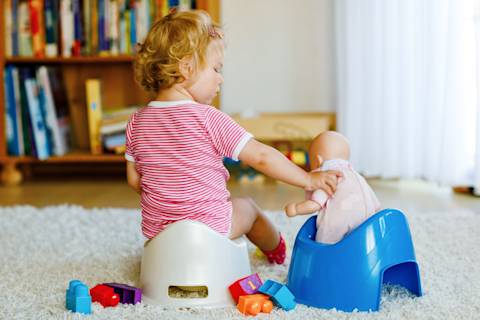When it comes to raising children, they say it takes a village.And for some, that village includes family members who make up a strong support network for you and your child.

Grandparents, aunts, uncles, and cousins -some of us are fortunate to have family members nearby or in the same household who are willing to help. Having this type of built-in support system can offer many benefits to you and your family, but it’s important to have an open and ongoing dialogue with your “village” to make sure everyone is on the same page.
Keep in mind that young children need and thrive on routine and consistency. Before asking your family members to look after your child, have an open discussion together about what your family’s help should look like. The more things that are discussed and set up beforehand, the better. Open communication and clear expectations will help ensure your child’s time with family is apositive inclusion of more people to love and be loved by. If your children are old enough, include them in the conversation too. Not knowing what to expect when a new caregiver is in charge– even if it is a familiar family member –can sometimes be scary or confusing for a child. Talking about what the situation will be like with your family members can help calm those nerves and set expectations.
If your child doesn’t have a close relationship with the family member who will look after her, plan for one or two playdates together ahead of time. This will show your child that she is a safe, trusted person and caregiver. Here are five topics to talk about ahead of time with the family member who will look after your child:
Food. Discuss what types of foods – and how much – your child eats. Offering favorite snacks and dishes can help your child feel more comfortable with the family member.
Sleep. Talk about when and how long your child sleeps so that the same sleep schedule can be followed. Letting your family member know what to look for when your child is getting sleepy (rubbing eyes, asking for milk, etc.) is also helpful.
Discipline. With grandparents especially, there may be a generational gap in how children should be disciplined. Talking about and showing the family members how you handle your child’s behavior is very important to help shape your child’s behavior and help your child develop positive skills with anyone they are with.
Routines. If you have a particular way you put your child to sleep (reading a book, singing a goodnight song, etc.), teach the family member your routine so he or she can do the same with your child. The familiarity of your routine will be both comforting and helpful.
Activities. Plan ahead to make sure your child will engage in fun activities that you approve of while under your family member’s care. For example, bring along your child’s favorite books or toys, and talk about your child’s favorite things to do. These simple steps will not only help your family member know what to do with your child, but will also build a positive relationship between the two of them.







